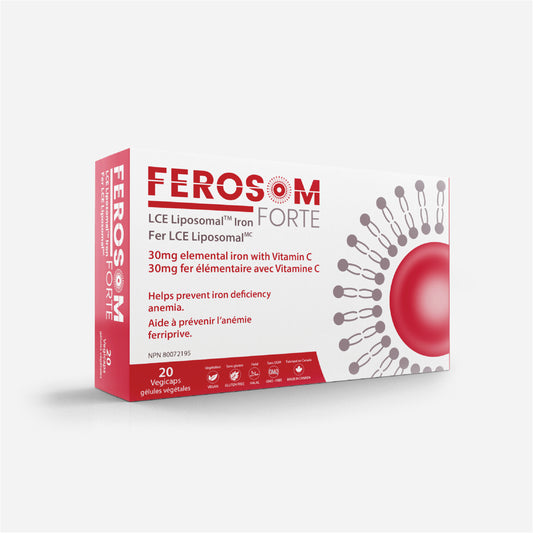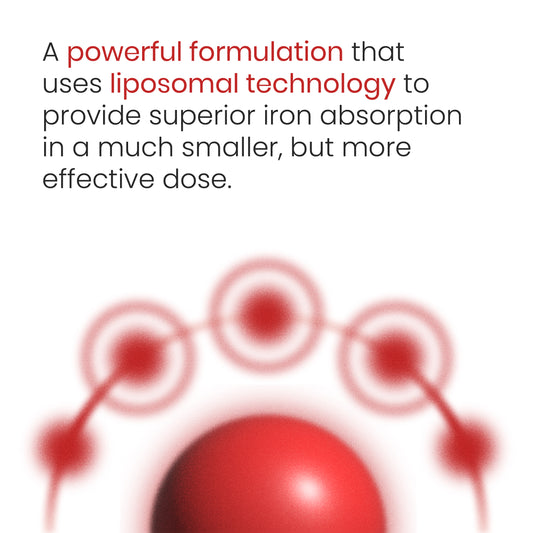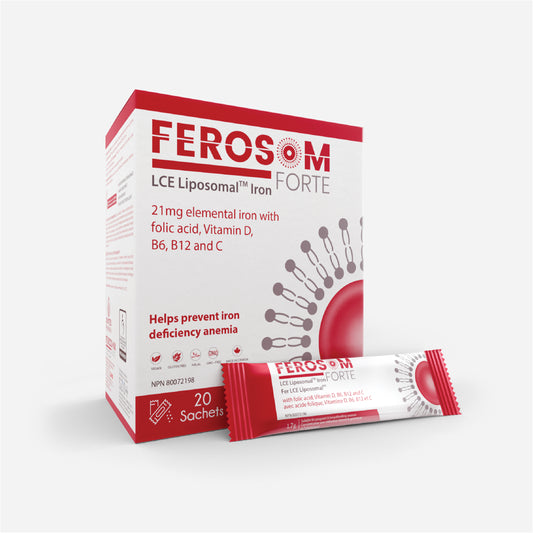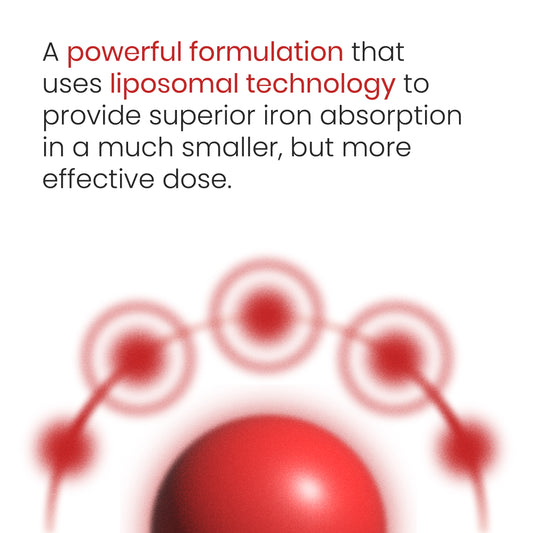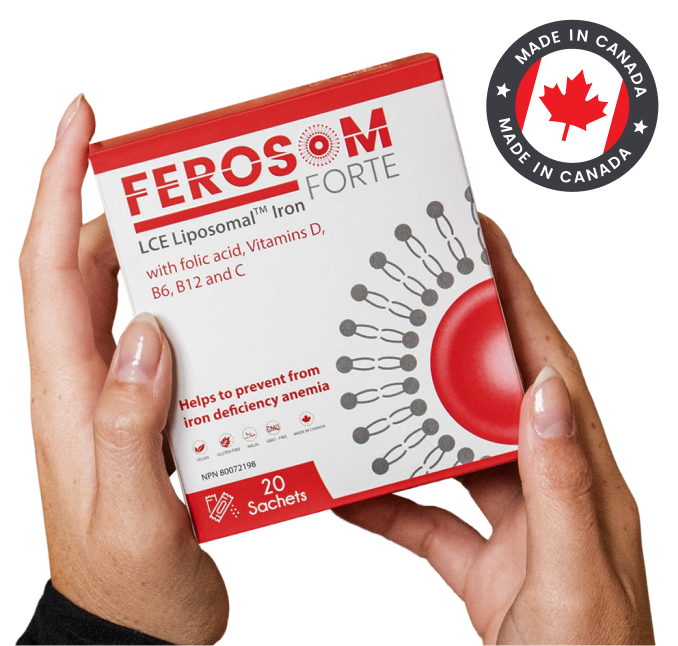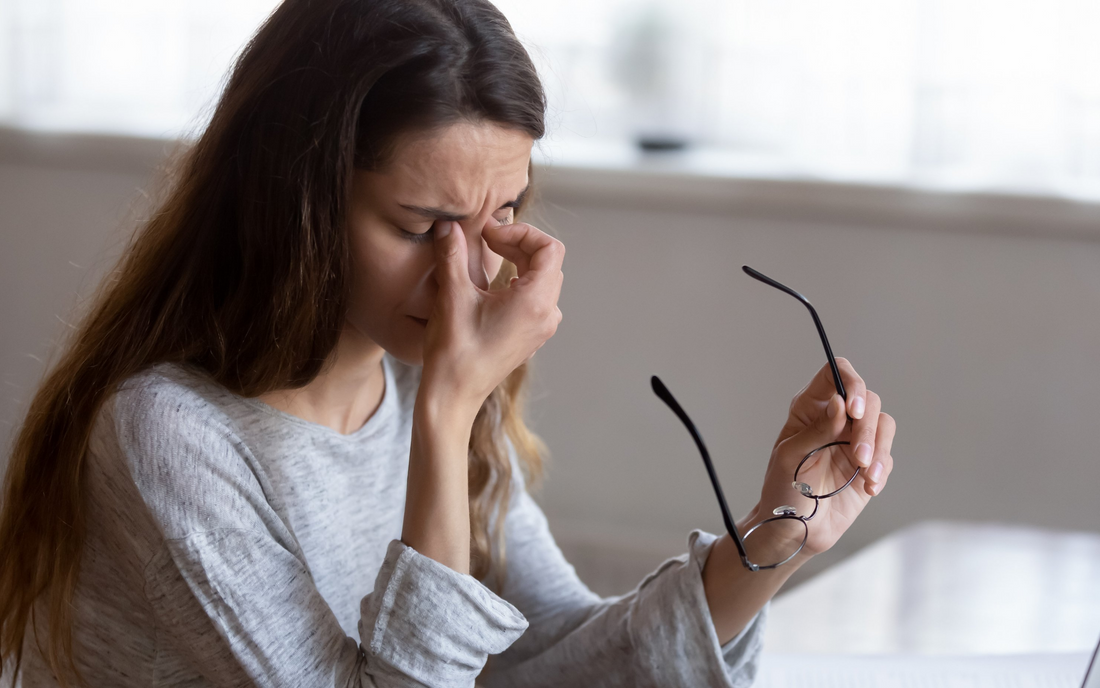

Ever feel like you’re constantly cold? Forever yawning? Always finding bruises that seem to appear out of nowhere? There might be one thing to blame for it all: low iron.
Iron is like water. Every part of your body needs it to function — from your head down. That’s why, when your iron is low, the symptoms can show up in all sorts of strange places.
It’s easy to brush off a lot of these symptoms like they’re nothing. But iron deficiency is a serious condition that can have major long-term effects on your health. Here’s why.
Why do we need iron?
Iron is a superhero nutrient. It helps produce red blood cells that hold a protein called hemoglobin. These hemoglobin-packed cells are responsible for carrying oxygen from the lungs to the rest of the body.
Yeah, they’re a pretty big deal.
Every organ, tissue, and muscle in your body needs oxygen to function properly. When your iron levels drop, so do your hemoglobin levels, which means there’s less oxygen to be passed around.
Your body will tell you when it’s low on oxygen. But here’s the catch: a lot of your body’s warning signs are hard to spot. Symptoms like fatigue, cold hands, or pale skin might just feel like another day in the life. (Fellow Canadians, we feel your pain).
That’s why it’s so important to keep a close eye on your overall health, so you can catch the symptoms of iron deficiency — like the 15 you’re about to learn about — before they snowball into an even worse condition, like anemia or heart failure.
15 common signs of an iron deficiency
- Hair loss
Want to hold on to those luscious locks? Keep your iron levels in check.
Iron is one of the most important nutrients for hair growth and a healthy scalp. If you notice you’re losing more hair than usual or that your hair feels extra brittle, iron deficiency might be to blame.
- Trouble concentrating
Endless notifications, distractions, and cell phone dings — having an attention span is hard enough these days. Add in an iron deficiency and concentrating on anything feels next to impossible.
Since hemoglobin is responsible for sending oxygen to the brain, low iron can slow down the brain’s function. This makes it harder to focus on a task, think clearly, or work productively.
- Shortness of breath
Breathing might feel like second nature, but it takes a lot of moving parts to make your respiratory system work. One of those parts is — you guessed it — iron.
Iron helps carry oxygen from your lungs to the rest of your body. If your iron levels are low, that puts a dent in the entire breathing process. You might feel out of breath, easily exerted, or like you’re struggling to breathe normally.
- Brittle nails
Are your nails looking a little weak? Are they growing in weird ways? Iron deficiency could be the culprit.
When your iron levels are low, your nails aren’t getting the nutrients they need to thrive. They might chip easily or refuse to grow. You might even notice strange markings, ripples, or indents on the surface. If you spot any of these warning signs, an iron supplement could do a lot more than a mani-pedi.
- Restless or tingling legs
One of the most common signs of low iron is a constant urge to move your legs. That’s why about 15% of people who suffer from Restless Leg Syndrome (RLS) have an iron deficiency.
RLS is a frustrating condition that causes people to lose control of their leg movements, even during rest. It can make sleep feel almost impossible and often gets worse as people age. Research shows that increasing your iron intake through food or an iron supplement can help ease the symptoms.
Even if you don’t have RLS, low iron might cause you to feel a tingling sensation in your legs. Pay attention to that feeling and talk to your doctor if it persists.
- Sore muscles
Your muscles are working overtime to keep you on the move. All of that work requires a lot of vitamins and nutrients to maintain strength and flexibility. Iron is just one of them.
If your muscles are feeling sore and achy from easy, everyday activities, talk to your doctor about how iron deficiency might be playing a part.
- Pale skin
Is your skin looking a few shades lighter than usual? This is one of the most common symptoms of low iron.
Hemoglobin helps give your skin that rosy, warm glow. When hemoglobin decreases, your skin won’t get as much blood flow as it usually does. The result? All sorts of paleness and discolouration.
If your skin looks extra pink, grey, or yellow, it might be time to double up on your iron intake. And remember, paleness can impact more than your skin. You might notice your gums, the inside of your lips, tongue, or fingernails are also discoloured.
- Bruising easily
So, you’re finding random bruises all over your body and you have no idea where they came from? It’s most likely not a Sixth Sense situation.
Bruises happen when the small blood vessels just beneath our skin get broken by a blow or excess pressure. The little vessels bleed out, which shows up as a dark black, blue, or red colour on the surface.
What stops the bleeding? Powerful blood cells called platelets. They help create blood clots so that the vessels can heal themselves. But these platelets need a healthy dose of iron to thrive — surprise, surprise.
If you’re experiencing frequent bruising, that means the clotting system (AKA the platelets) aren’t working the way they’re supposed to. Upping your iron might be the cure to your bruising battle.
- Period problems
Iron deficiencies are 18% more common in women than men. A big reason for that is menstruation. Women lose a significant amount of blood every month, causing healthy red blood cells to flow out of the system.
That’s why women who suffer from menorrhagia, also known as heavy bleeding, often struggle with iron deficiency anemia too.
Low iron can also cause more period problems. An iron deficiency can make it harder for your body to regulate blood flow. This can result in longer and heavier bleeding, excessive cramping, and intense mood swings during menstruation.
- Chronic fatigue
It’s normal to feel a little tired every now and then. But if you’re constantly in a state of fatigue, your body is trying to tell you something.
Fatigue is one of the most prevalent symptoms of iron deficiency. Without enough hemoglobin to carry oxygen to all your muscles and tissues, your whole body can feel sluggish, slow, and just plain sleepy.
- Cold hands and feet
Most of the time, blood is circulating through your entire body at a healthy rate. But if oxygen and iron levels are low, your blood flow might not have enough juice to make it all the way to your fingertips and toes.
That’s when your hands and feet can start feeling cold to the touch. By boosting your iron, you should be able to increase circulation and get a steady rush of warmth where it’s needed most.
- Weird cravings for things that aren’t food
We know this one sounds a little crazy. But it’s actually one of the telltale signs that your iron levels need attention.
Anemic people can sometimes develop a syndrome called pica. This syndrome can make you crave all sorts of stuff that you wouldn’t normally crave — like dirt, ice, or clay. It’s unclear exactly what causes pica, but a high-quality iron supplement has been proven to keep those strange cravings at bay.
Unless you really do love eating dirt. No judgements.
- Headaches and dizziness
Struggling with constant headaches or random dizzy spells? It could be low iron causing a lack of oxygen to your brain.
Headaches, dizziness, lightheadness, and even fainting are some of the first signs that can tip off an iron deficiency. If these symptoms stick around, don’t dismiss them. Talk to your doctor as soon as possible.
- Heart issues
When hemoglobin levels shrink, your body will try to circulate blood faster so that it can get the small amount of oxygen it has to as many places as possible. To make this happen, your heart has to pump faster than normal.
That’s how iron deficiency can lead to increased heart rate, heart palpitations, an irregular heartbeat, and even chest pains. And if left untreated, you could develop more long-term heart issues down the line.
- Canker sores
Also known as mouth ulcers, canker sores are sore white or yellow patches on the inside of your mouth, usually surrounded by red inflammation. These little guys hurt big-time. And they might be a sign that you aren’t getting enough iron.
A recent study found that 66% of mouth ulcer cases also had lower than normal iron levels. Increasing your iron could be the cure for those painful cankers.
What can I do if my iron levels are low?
These symptoms are common, but they aren’t one size fits all. Some people with low iron might have super cold hands, while others might struggle with constant headaches. The trick is to be aware of the many symptoms of an iron deficiency, so that you can take action when your unique symptoms start to show.
But how do you take action? Great question.
You can up your iron by eating more iron-rich foods, like red meat, poultry, seafood, beans, nuts and seeds, iron-fortified bread, and dark green leafy vegetables.
But if you’re looking for a big-time iron boost, try a Liposomal iron supplement like Ferosom Forte.
Liposomal iron not only has a higher absorption rate, but also skips the stomach breakdown to avoid the awful side effects associated with most supplements for anemia. (Click here to learn more about the power of Liposomal iron.)
Ferosom Forte is no exception. Its proprietary LCE coating and Liposomal form work together to make sure your body is actually absorbing all the iron it needs to. Plus, the supplement is infused with Vitamin C – iron with vitamin c help enhance absorption. That means increased iron levels, more hemoglobin, and less of those 15 frustrating symptoms.
You in? Try it in capsule form or mix the sachet supplement in with your favourite beverage!
Already love Ferosom and want to refer a friend? Join our referral program and get 15% off your next order!

